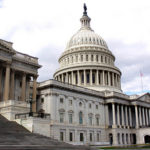When Baptists in America study their history, they typically respond with pride. The denomination’s longstanding witness on behalf of religious liberty can be traced to the first Baptists in England, who boldly proclaimed that God alone was the ruler of conscience. As Thomas Helwys put it to King James, the king is not God, but a mortal man, with no power over the souls of his subjects.

K. Holly Hollman
|
Baptists claim Roger Williams, who founded Rhode Island as a refuge for religious liberty when he was kicked out of Puritan Massachusetts; and John Clarke, who established the first Baptist church in Newport, R.I. They led a religious-liberty experiment on this continent that eventually would take root and spread. Virginia Baptist John Leland had a pivotal role in the disestablishment movement and pressured James Madison for a constitutional amendment to protect religious liberty, embodied as our “first freedom” in the Bill of Rights. At the foundation of our faith is freedom.
From our beginnings and throughout our history, Baptists have made their mark on behalf of the separation of church and state as the best means to secure religious liberty for all. Yet, for some, pride in the historical contributions of Baptists does not translate into bold support for religious-freedom protections today. Baptist Americans, like all Americans, benefit from the constitutional tradition that keeps our government from establishing religion and interfering with religious practices. In many communities, however, we are in the majority and have lost sight of the compelling story that informs our freedom.
As a church-state lawyer, I know that many current religious-liberty disputes involve fine distinctions and do not always warrant comparison to the lack of liberty our Baptist forbears faced. But I also believe Baptists who claim our religious-liberty legacy with pride should be careful not to take freedom for granted. If we fail to exercise our freedom responsibly or lose sight of the importance of having a government that is neutral toward religion, we can hardly claim the mantle of those Baptist heroes whose stories we love to tell.
In disputes over the relationship between the government and religion today, there remains a significant need for those who are willing to speak truth to power with the conviction of historic Baptists. There is no question that most Americans cherish their religious identity and that religion is on display, not just in our homes and houses of worship, but in the public generally. It is a natural consequence of the freedom our Constitution protects. However, when religious monuments are displayed on government property in a context that aligns the government with a religious message, our freedom is threatened.

|
Shouldn’t every historic Baptist oppose those (even if it is a fellow church member) who would act as “king” over the consciences of others by using the state to promote a favored faith? If we stand against religious establishments, how can we sit back and let the government choose which Scripture or symbols to promote on behalf of its citizens? Aren’t those decisions best left to the consciences of individuals and faith communities? Whether it is a solitary cross on federal land or a monolith engraved with a version of the Ten Commandments on the courthouse lawn, government-sponsored religious displays run counter to the principle that the government should not interfere with the religious choices of individuals. The distortions of history and religion used to justify government involvement in such matters underscore this point.
Sign up for our weekly edition and get all our headlines in your inbox on Thursdays
Similarly, as Baptists opposed paying taxes to support a church established by the state, can they really not notice the importance of debates over government funding of religious education through vouchers or government funding of social services provided by religious entities? Just because the lines have been blurred and the terrain is difficult does not mean there is not a strong role for Baptists to play in ensuring that the government does not use taxpayer funds to support religion.
Most importantly, claiming the legacy of Baptists for religious liberty means understanding what it is like to be a minority fighting against a government that has joined forces with the religious institutions of the majority faith. We should be the first to understand the struggles of religious minorities and ensure that our government does not use differences in religious beliefs or practices draws political divisions or to coerce people in matters of faith.
As Baptists, we are called to lead—or we risk losing the historical claim to the religious freedom that has been among our proudest legacies for more than 400 years.
K. Hollyn Hollman is general counsel for the Baptist Joint Committee for Religious Liberty in Washington, D.C.














We seek to connect God’s story and God’s people around the world. To learn more about God’s story, click here.
Send comments and feedback to Eric Black, our editor. For comments to be published, please specify “letter to the editor.” Maximum length for publication is 300 words.